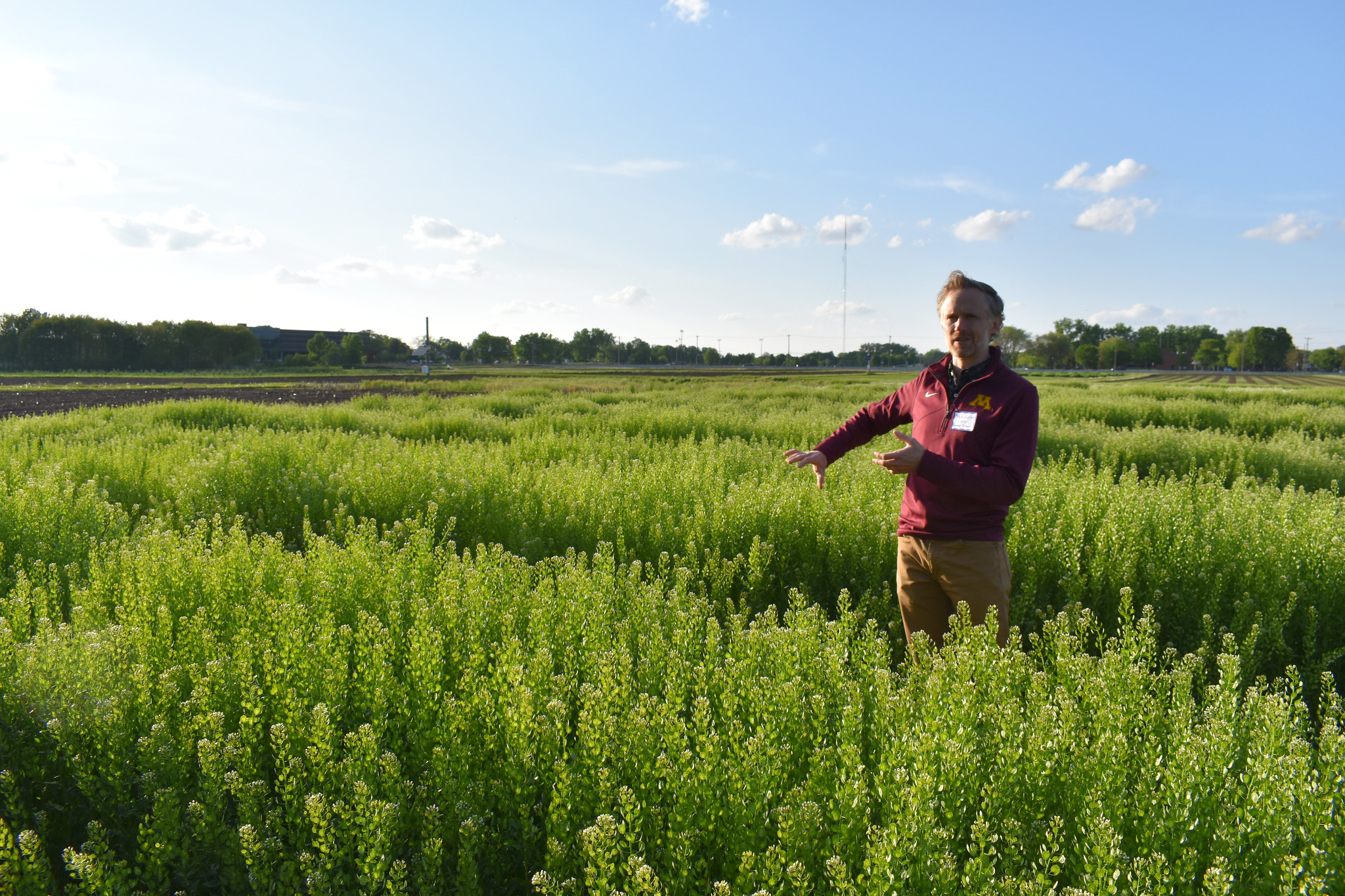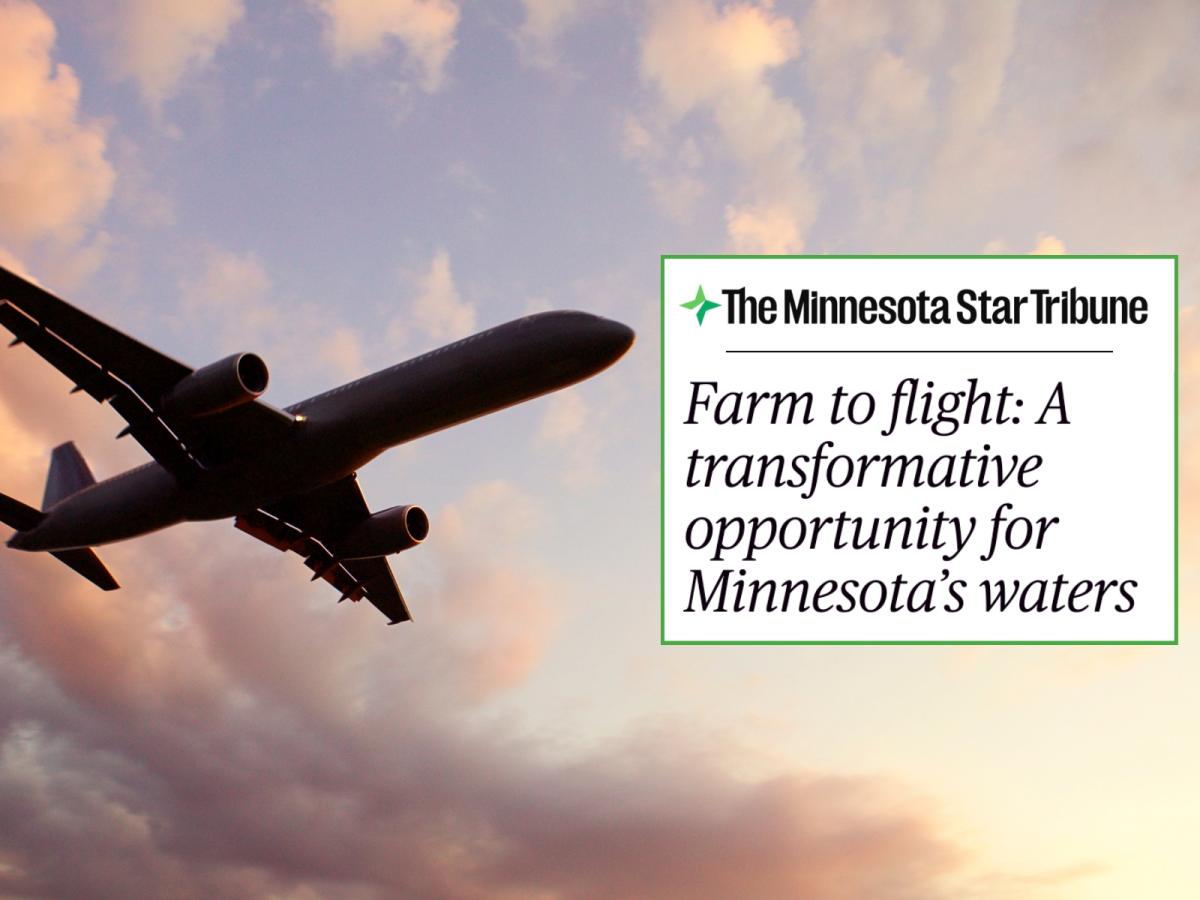State shines Earth Day spotlight on winter-hardy oilseeds

The Earth Day event was held at some of the winter-hardy oilseeds fields on the University of Minnesota campus (seen here in 2024), where Forever Green researchers are working to advance these promising new crops.
The promise of sustainable aviation fuel made with winter-hardy oilseeds isn’t just about lower emissions. As Minnesota Pollution Control Agency Commissioner Katrina Kessler explained at a recent event, it is “a clear opportunity to lead” on one of the trickiest decarbonization challenges of our time, while also getting Minnesota cleaner, healthier water and ecosystems.
Kessler made these remarks on Earth Day in front of a verdant field of pennycress — one of these new winter-hardy oilseed crops — on the University of Minnesota’s St. Paul campus. It was a chance for state leaders, crop researchers, business leaders and others to show why winter-hardy oilseeds are among the most sustainable choices for low-carbon aviation fuel.
Pennycress and its sibling oilseed crop, winter camelina, hold the key to making sure sustainable aviation fuel doesn’t just reduce emissions, but helps address some of the other environmental crises Minnesota is dealing with.
“As we speak, here on Earth Day, 17 million acres of Minnesota cropland have nothing growing on them. They are at high risk for soil erosion and nitrate leaching,” Mitch Hunter, co-director of the Forever Green Initiative at the U of MN, told the crowd. “But not this field of pennycress.”
Hunter pointed to research that shows winter-hardy oilseed crops can reduce erosion by as much as 80% and nitrate loss by as much as 90%, while also noting that in the weeks ahead, the pennycress field will become “a sea of white flowers” that offer a spring food source for pollinators.
“This is a vision of what agriculture in Minnesota and the Upper Midwest could be,” Hunter said.
At the Earth Day event, the MPCA also announced a $75,000 grant to Forever Green to help fund a study to lay out how we can get from thousands of acres of winter-hardy oilseeds to 1 million — and beyond. (Read more about the study from Forever Green.)
MPR News, the Pioneer Press, ABC 6 News and Minnesota News Network were among those that published stories about the event.
Winter-hardy oilseeds: The right choice for the moment
Winter-hardy oilseeds have real advantages over many of the other sustainable aviation fuel sources (called “feedstocks”) being considered.
They remain in the ground from fall through spring, so they can be grown on the same acres as Minnesota’s usual summer crops, such as corn and soybeans.
Because they’re grown during that time, they help us cover the big brown spot. That’s the predominant source of pollutants to the Mississippi River, and a main factor in some of our most challenging water quality crises.
Winter-hardy oilseeds’ roots and living green leaves also keep rich topsoil in place and on the land (so it doesn’t end up in our rivers and streams). And they soak up fertilizer the summer-grown crops didn’t get to, helping to keep nutrients such as nitrate and phosphate out of our rivers, lakes, streams and groundwaters.
FMR’s view
Just like the MPCA points out, we agree that decarbonizing air travel as quickly as possible is necessary. But it's vital these choices not be made in a lower-carbon vacuum. We have a responsibility to consider the full environmental impact of different fuel sources, and to prioritize the feedstocks that prove to be the most sustainable in the short- and long-term.
The research and data tell us that winter-hardy oilseeds provide the highest number of benefits for our environment and economy, and provide a rare opportunity to solve multiple environmental challenges at once: In the air, on the ground and in our waters.
